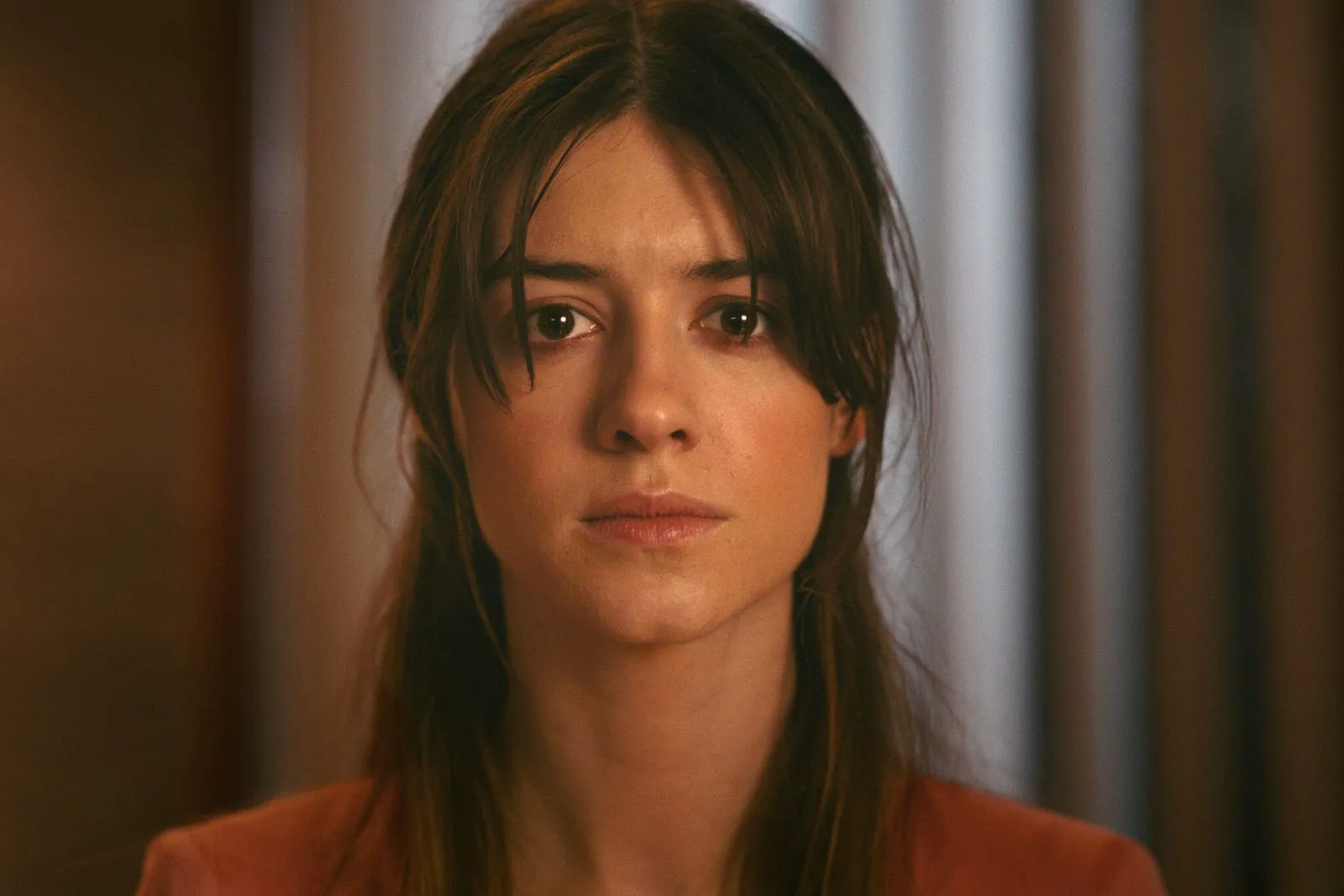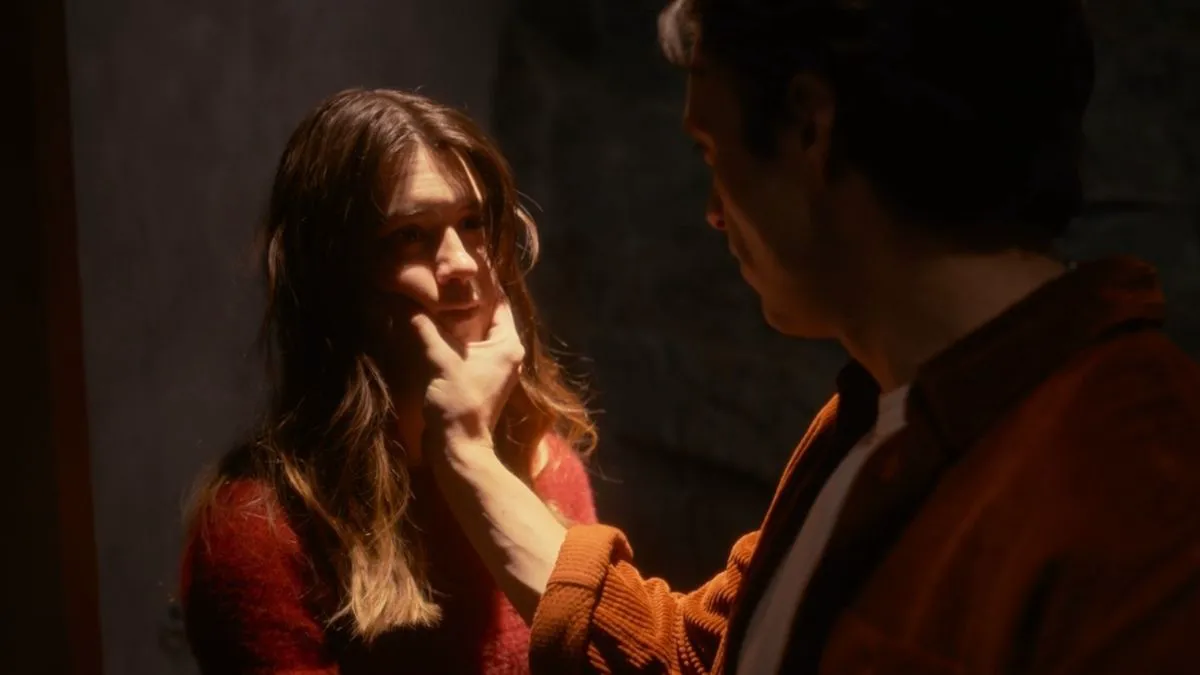February has passed, a month that for several years has been marked by the Women in Horror Month initiative, dedicated to female authors of the “low” genre. It’s worth acknowledging that both female directors and horror films are becoming less stigmatized in the industry each year: it’s quite natural that a profound understanding has arisen between them. Jennifer Kent and “The Babadook,” Julia Ducournau and “Titane,” Ana Lily Amirpour and “A Girl Walks Home Alone at Night,” Sophie Takal and “Always Shine” — the list could go on, but let’s focus on the charismatic and amazing debutante Mimi Cave. After a series of short films, she presented her first feature film, “Fresh,” at the Sundance Film Festival this winter. Now the film is available on Hulu, which is inaccessible to us, but still.

Sebastian Stan as Steve in a still from the movie “Fresh”
Noah (promising actress Daisy Edgar-Jones) can’t stand dating, but being alone is, generally speaking, already tiresome. It seems that the cabinet of curiosities of suitors from dating apps will never end: someone recommends she wear dresses, someone sends dick pics instead of greetings. After another fiasco, her plans for the evening boil down to a combination of fast carbs and alcohol. On the way to realizing her goal in the fruit section, she meets “the one” guy that everyone wants to meet in a grocery store. Witty, courteous, good with children — Steve (Sebastian Stan) blurts out all the main data in two minutes of casual conversation. Chit-chat between the aisles turns into a couple of cocktails, and then into a trip to the countryside to picturesque places without an exact address. Here could be the final credits of an ordinary rom-com, but instead, there are the opening credits of Mimi Cave’s horror film. Owls and good doctors from the supermarket are not who they seem.

Daisy Edgar-Jones as Noah in a still from the movie “Fresh”
The picture takes a 180º turn: should the description of the further plot be considered a spoiler? Hardly. Behind the rainbow picture of budget romance, there was a hidden anxiety all this time, which only her best friend Mollie (Jojo T. Gibbs) dared to voice. Women have long stopped believing in ideal strangers — men with a bag of fruit are either brothers visiting in the hospital or suspicious faces. It’s hard to say whether Cave intentionally drew a parallel, but it was with grapes that Jack the Ripper lured his victims — a serial killer of sex workers and, according to one legend, a skilled surgeon, like the dream man Steve. The girls of London in the late 19th century sold themselves under the vigilant patronage of the head of the brothel, today these commodity relations have moved to another plane. The body is still a bargaining chip: in the media and public consciousness, a woman is not always, but still too often assigned the role of an object that can be studied and evaluated in parts — hair, breasts, buttocks, continue yourself. Debutante Cave decides to approach the painful question with genre persistence: what if you literally sell arms, legs, fingers, and feet to hungry and insatiable men? In retelling, this may seem like a simplification, but not on the screen: the clever comparison becomes an emotional and uncompromising tool for the director. But back to Noah: the girl has not only to preserve herself entirely as a person but also to get out of the vicious capitalist circle, where the main offer on the market is her meat.

Daisy Edgar-Jones as Noah in a still from the movie “Fresh”
Without dwelling on bare ideology, Cave rips open the belly of the genre: “Fresh” is not only a feminist statement but also an amazing bloody attraction. Mimi accurately feels the rhythm of cinematography: the musicality of the film (and the soundtrack consists entirely of hits that you want to instantly add to your playlist) does not argue for a second with the visually rich texture. Symmetry, broken angles, dances, first-person shots, inventive editing… The latter has a special role as a skilled manipulator of the viewer’s well-being. “Fresh” knows exactly what it wants: where it will be nauseating, where it will be funny and unbearably painful at the same time, and when you want to close your eyes. Sexual desire, fused with a sense of cannibalistic hunger, can hardly leave anyone indifferent — this is an accurate shot from the first charge. Mimi didn’t miss with the cast either: Daisy Edgar-Jones became one of the favorite actresses of the generation after “Normal People” — her natural organic nature instantly makes you “be in her shoes,” and Sebastian Stan frankly asks for the major league of movie killers for particularly serious crimes on the screen.
Thematic Resonance
Despite the special sound of the creative “I,” Mimi Cave’s polemic, like most young female directors, is addressed to questions of body and corporeality, which have long gone beyond genre categories. And the aforementioned Julia Ducournau (who also turned to cannibalism in her debut), and last year’s other triumpher Audrey Diwan, and Ana Lily Amirpour and her “Mona Lisa and the Blood Moon” — they all use pain and physiology to translate personal experiences into a universal language. Perhaps, it is “Fresh” that manages to do this most succinctly and vividly thanks to its shameless literalness: we are already sick of objectification.